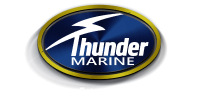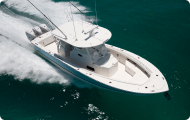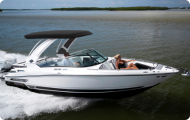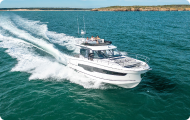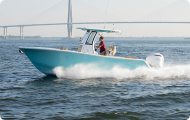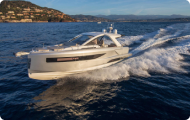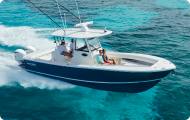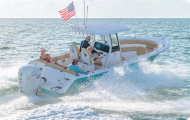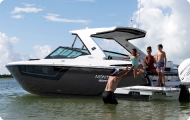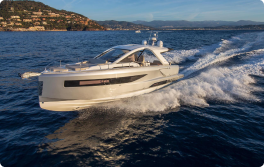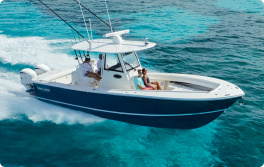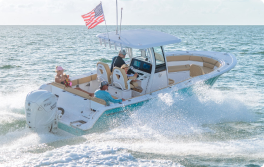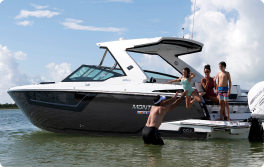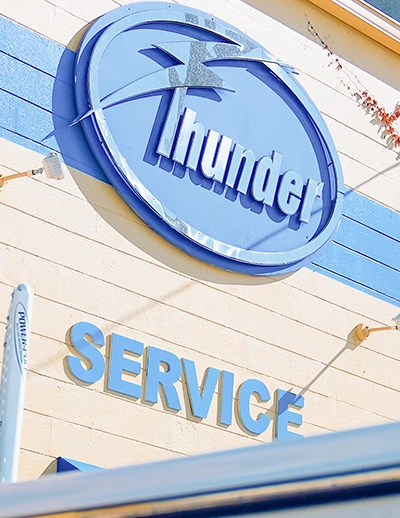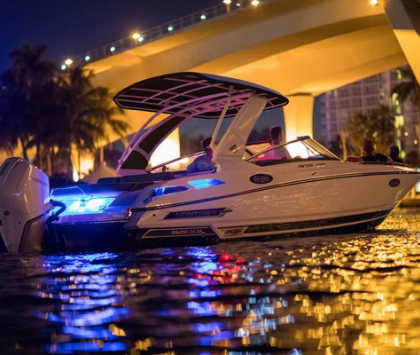Dreaming of owning a boat in Florida and cruising through picturesque waterways? Before you dive in, let’s explore the essential factors laid out in this guide for a smooth boat-buying experience.
Choosing the Right Type of Boat
Florida has a variety of waterways, each demanding a different type of boat for different activities. Whether you’re interested in offshore fishing or enjoying family time on one of the many lakes, selecting a boat that matches your primary activities is crucial. Consider the boat’s size, type, and features based on where you plan to use it most often. The following boat types are popular in Florida:
Power Boats: If you crave speed and thrill, power boats are your go-to. Whether it’s wakeboarding or zipping across the waves, these boats deliver excitement.
Bowriders: Ideal for day trips, bowriders provide comfortable seating and versatility for water sports and leisure.
Cabin Cruisers: For longer adventures with friends and family, these boats offer cabins, amenities, and plenty of space to explore in comfort.
Sea Trial and Inspection
Before finalizing your purchase, conduct a sea trial to uncover any potential issues and have the boat inspected by a qualified marine surveyor to ensure the boat performs to your expectations. It’s a critical step in the buying process, offering peace of mind about your investment. Here’s what you can expect during a sea trial:
A sea trial is a critical evaluation of the boat’s engine performance and includes:
– a thorough examination of hoses, belts, fuel lines, mounts, and fluid leaks.
– inspection of steering, throttle, and shift controls.
– expert repair recommendations if any issues arise.
The inspection is a full assessment of the boat’s condition, value, seaworthiness, and compliance with safety criteria. The price for these services varies based on boat length and type.
Boat Ownership Costs in Florida
Beyond the purchase price, be informed of the ongoing costs associated with boat ownership. These include docking fees, maintenance, insurance, fuel, and potentially storage fees during hurricane season. Let’s break down each of these expenses:
- Fuel: The average annual fuel costs for recreational boats can vary based on the boat type, engine size, and usage.
- Storage and docking fees: If you keep your boat at a marina or storage facility, expect to pay between $200 to $1,000+ per month.
- Safety equipment and accessories: Necessary for operation and passenger safety.
- Insurance: Typically $500 to $2,000+ per year.
- Routine maintenance and repairs: Experts recommend annual maintenance equaling about 10-15% of the boat’s value to maintain it in good condition.
Registration, Safety, and Regulations
While Florida does not have a boating license, anyone born on or after January 1, 1988 is required to either have successfully completed a National Association of State Boating Law Administrators (NASBLA) approved boating education course or have passed an equivalent course or temporary certificate examination. Additionally, they must have in their possession a boating education ID card and a photo identification card before operating a vessel with a motor of ten horsepower or more in Florida.
Registration and Title: When you buy your boat, you’ll need to register it with the State of Florida and obtain a title.
Safety Identification Card: Boat owners are typically required to obtain a boating safety identification card. This card demonstrates your knowledge of boating safety rules and regulations.
Safety Equipment: Ensure your boat carries the necessary safety equipment, such as life jackets, fire extinguishers, and distress signals. These items are essential for your safety and compliance with state laws.
For details on registration, fees, and other requirements, visit the Florida Department of Highway Safety and Motor Vehicles website.
For more information on Florida boating laws, boating safety and the Florida Boating Safety Education Program, visit the Florida Fish and Wildlife Conversation Commission website.
Insurance
While not required by law in Florida, securing the right type of liability coverage is an important consideration for boat owners and certain situations may necessitate coverage. For example:
– If you use your boat as collateral for a loan, the lender may require insurance.
– Marinas often have insurance requirements for boats docked there.
– Florida’s busy waterways and the risk of hurricanes make insurance a good idea.
Coverage Benefits: Boat insurance can provide coverage for:
– Damage to Your Vessel: Whether on water or during transportation.
– Liability: In case of injury or damage to others.
– Medical Payments: Coverage for injuries sustained by you or guests.
– Uninsured Boat Owners: Protection if your boat is damaged by an uninsured vessel.
– Towing Coverage: Assistance if you’re stranded and need towing.
Remember that boat insurance policies have specific navigational territories. Before you venture beyond these boundaries (e.g., from Florida to the Bahamas), check if your policy covers the extended area.
Your Partner in Boating
Choosing a reputable, quality dealership can provide invaluable guidance and service throughout the ownership of your boat. Thunder Marine is an award-winning local dealership, loved and trusted by our customers for over 40 years. We make boat buying simple and easy with one of the largest inventories of boats for you to choose from. Whether you want to get a luxury Offshore Center Console, Cabin Cruiser, Deck Boat, or Inshore Center Consoles, our experienced staff of captains will help you find the perfect boat to fit your lifestyle and needs. Remember, buying a boat is not just a transaction—it’s the beginning of a lifetime of adventures on the water.

